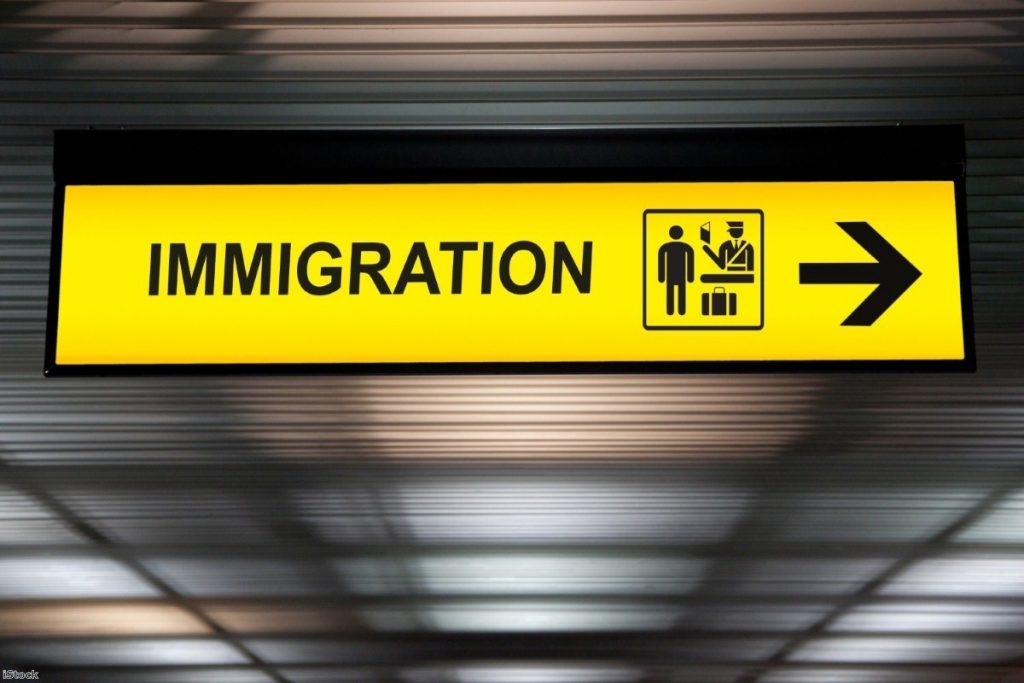A cross-party group of MPs, mayors and religious figures respond to the much-delayed immigration proposals released yesterday by Sajid Javid.
The government's immigration white paper has landed at last. After months of leaks and briefings, we now have clarity on some of the key immigration policies it wants to pursue after Brexit.
Among those policies, migrants from anywhere in the world will need to earn over a certain threshold – possibly as high as £30,000 – to get a visa here, lower-paid migrants will be expected to leave after a single year, the visa cap which has previously blocked NHS recruitment will be lifted, and international students will be given the right to stay for six months after graduating in order to look for work.
So, as a cross-party group of MPs and politicians, what do we make of it all?


Firstly, it has taken a very long time to get here. The paper was scheduled for release in summer 2017. Then last autumn. Then some time in 2018, then definitely this autumn. Then autumn turned to winter and we reached the final day of parliament. And only now has it been published, eighteen months after it was first promised, at a time when MPs are looking at work in their constituencies, not scrutinising policy in Westminster.
Further, the continuing disagreement about the longevity and desirability of the government's 'net migration target' to bring annual net migration down below 100,000 per year still hangs like a long shadow over the policy debate.
One of the stand-out policies is the proposed wage cap.
It is essentially a way to cut immigration by targeting anyone who can't earn beyond a certain level. And it may well be successful in driving down immigration – the white paper talks about numbers going down by as much as 80%. But at what cost?
The average salary in Cornwall is just under £20,000. In Cumbria it is just over £20,000. If set at £30,000 per annum, thousands of skilled, motivated migrants, especially if the jobs they wanted were outside London and the south-east, wouldn't meet this seemingly arbitrary threshold. Workers in agriculture, tourism and hospitality, care homes and even nurses simply would not qualify.
So they will just make other plans. Foreign professionals who might once have made their lives here will stay and apply those skills at home. Maybe they'll try their luck in parts of the world which haven't frozen them out. Our economy might need them, but they won't be here.
There is currently no agreed figure, but instead a commitment to consult business and other stakeholders on what level the income benchmark should be. However, further uncertainty for business and individuals means that we could be in the dark about it until just months before the new system is due to start – in January 2021.
Let's lose the arbitrary numbers and introduce a bit more flexibility. Whole communities suffer if businesses can't recruit the people they need. A more sensible approach will save jobs for Brits and migrants alike, and help the families who rely on them.
There are also some worrying signs for integration, too. Immigration numbers are just one, rather blunt part of the debate. Another is how people find a way to live together here, whether they've been part of our country for a few months or their whole lives.
The government, to its credit, is committed to helping ease that process, and has put its money where its mouth is. But the single-year visa (with a further twelve-month ban on coming back to Britain afterwards) proposed in the white paper threatens to undermine that work.
The policy might be understood as a worker's scheme, letting people come to the country to work but always under the shadow of leaving again in a few months.
Contrary to many people's beliefs, the British public isn't at all keen on structuring immigration rules like this. And it’s hardly surprising: it is the difference between a churn of new neighbours, constantly arriving and leaving your street with no incentive to integrate, and people moving in with long-term goals and every reason to make a success of life in their new home.
In addition, having to recruit, train and integrate new staff into your workforce every year will put an additional cost on to businesses and also deter them from investing in those people to develop their skills. This cannot be good for our economy for the long term.
Although not focused on humanitarian protection per se, the white paper does restate the government's commitment to international protocols. It mentions that it will be "listening carefully" over the question of whether asylum seekers should be allowed to work while their claims are being decided. Thee is also a continued focus on the efficacy and rectitude of non-time limited detention, which we welcome.
There will now be a further period of consultation and it is crucial that the voices of cities, regions and local businesses are now properly heard. Those on the front line of immigration are best placed to understand local capacity and business needs.
This is a detailed paper, and it will be pored over in the days and weeks ahead. Lots of us have been waiting a long time to debate its contents.
Right now, there are some measures to reassure us, but plenty still to resolve.
Steve Double MP (Con) St Austell & Newquay
Kate Green MP (Lab) Stretford & Urmston
Tim Farron MP (LD) Westmorland & Lonsdale
Paul Butler, The Bishop of Durham
Marvin Rees, Mayor of Bristol (Lab)
The above are involved in the RAMP Project – a non-partisan, cross party initiative that seeks to re-imagine a world-class migration system for a successful and integrated Britain.
The opinions in politics.co.uk's Comment and Analysis section are those of the author and are no reflection of the views of the website or its owners.












